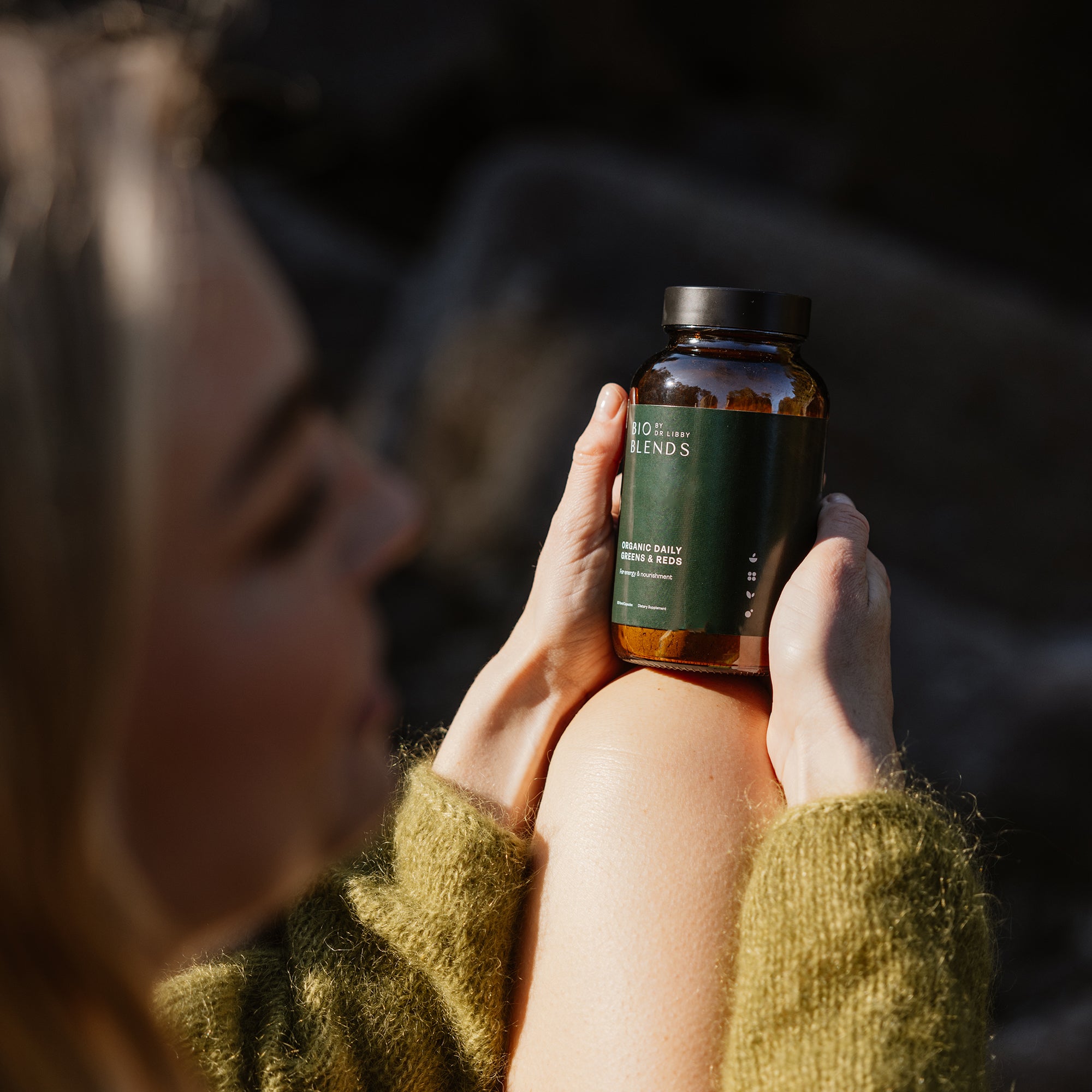
You asked. We answered: Women’s health edition
You asked, we listened. We regularly share real-life questions from our community – and expert insights from our clinical team, guided by Dr Libby. This month, we’re talking sleep and women’s health.
Navigating hormonal shifts, energy slumps and monthly discomforts can feel confusing – especially when the answers aren’t always obvious. That’s why we’ve opened up space for you to ask your most pressing health questions. Each month, our clinical team – guided by Dr Libby – responds to real questions from our community with practical, compassionate advice.
This month, we’re talking about sleep struggles in perimenopause, how to support your health as a shift worker and what to do about cycle-related headaches.
Q: I’m in perimenopause and go to bed exhausted but feel wired the moment I lie down. Why?
A: This is a common pattern in perimenopause and often reflects a shift in the internal buffers that once protected your sleep. As ovulation becomes irregular, progesterone production – and all of its calming and anti-anxiety effects – become unreliable and some women really notice its absence. Also, we all experience natural “sleep windows” – moments in the evening when sleep comes more easily. If these windows are missed, your body may catch its second wind – often in the form of an 11pm adrenaline surge. The result? You’re suddenly wired, despite being exhausted. In these moments, while adrenaline runs high, it’s harder to unwind. Herbal support such as liquorice and paeonia (found in Cycle Essentials) helps the pituitary to communicate with the ovaries and may help restore cyclical ovulation again for a time. Calming and nervous system soothing herbs like Chamomile, Lemon balm, Zizyphus and Magnolia (found in Calm Restore) can help buffer this response and support more consistent, restful sleep.
Q: Do you have any wellness advice for shift workers?
A: Focus on what’s in your control. Prioritise nutrient-dense meals to fuel your body and consider adrenal support with blends like Calm Restore. Topping up key nutrients such as vitamin C and co-enzyme Q10 can support energy and cardiovascular health. Just as important is your mindset – resisting your schedule often increases stress. Instead, try to cultivate acceptance. Long, slow diaphragmatic breathing, short naps where possible, and kind self-talk can make a world of difference. For more inspiration, check out The Healthy Shift Worker podcast by Audra Starkey.
Q: I get headaches around my period. What can help?
A: Period-related headaches are often linked to liver function. Supporting your liver can help with healthy hormone metabolism and reduce inflammation. Start by increasing liver-loving foods, like plenty of green vegies; broccoli, cabbage, cauliflower and brussels sprouts are particularly helpful. Medicinal herbs – like those found in Liver Love – can also be super supportive and they help with bile production and detoxification, crucial for healthy estrogen metabolism. Taking a break from dairy foods (trialling this strictly for four weeks) and alcohol has benefited many others with pre-menstrual headaches, in Dr Libby’s clinical experience. Acupuncture may also offer relief. By enhancing detoxification and hormonal clearance, you may experience fewer (or no!) headaches and more inner balance across your cycle.
Q: I’ve been taking Iconic Iron for the last month and I’m sleeping so much better. Why is that?
A: You’re not imagining it – iron plays an important role in sleep quality. Iron is needed to make neurotransmitters like GABA, which influence how well we are able to fall and stay asleep. It’s also vital for the production of serotonin and melatonin – your body’s sleep–wake hormones. When iron levels are low, some people experience restless legs, light or broken sleep, or difficulty winding down at night as when we’re iron deficient, we easily feel anxious. By restoring your iron stores as you are with Iconic Iron, it’s helping your nervous system relax more fully to support deeper, more restorative sleep.




